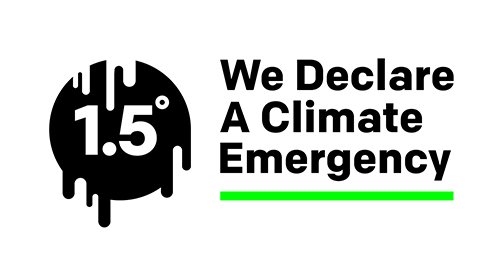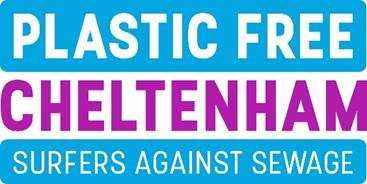Send a message 0333 344 5890 |
- Home
- Knowledge
- Learning Hub
- Why should I work with my suppliers on carbon reduction?
Why should I work with my suppliers on carbon reduction?
As businesses increasingly push for a greater focus on sustainability down the supply chain in line with government targets, it can be hard to know what the importance truly is. In the first of a series of articles on shifting your supply chain towards net zero, I’ll provide an overview of some key drivers, and why businesses should be looking at this topic today.
Government net zero targets
In September, the UK government reaffirmed their commitment to the country reaching net zero by 2050 – this means reducing the UK’s carbon emissions to a level that can realistically be neutralised by removing a similar amount of CO2 from the atmosphere. While this is a complex process, intrinsically interwoven with other countries’ net zero commitments, the ultimate impact on UK businesses will be a required reduction not just of their individual carbon footprint, but of their supply chain’s carbon footprint too.
While the overall target is to reach net zero by 2050, the UK government have also committed to reaching a 78% reduction in carbon emissions by 2035. This commitment was made through the UK’s sixth Carbon Budget in 2021, with the government looking to meet their target primarily through investment in renewables, the transition to electric vehicles and green innovations.
The significance of supply chain emissions
Given supplier emissions account for an average of 74% of a company’s total carbon footprint (CDP, 2019), supply chains are a key, yet often overlooked, element of business carbon emission calculations.
Statistically, supplier scope 3 emissions are underreported by as much as 43% (CDP, 2019)! It is critical therefore to establish, fully calculate, and report your suppliers’ carbon emissions to fully achieve net zero as a business.
Pressure down the supply chain
Customer buying intention – B2C businesses
As consumers increasingly change their buying habits to more environmentally friendly choices, businesses with little to no focus on sustainability or carbon reduction are losing touch with younger buyers. A trend which can be monitored alongside the rise of “B-Corp” businesses, there is increasingly more trackable buying intent from consumers focussing on sustainably produced products created by businesses actively doing good for the planet.
In order to fully achieve net zero, and to demonstrate a commitment to carbon reduction, businesses should prioritise getting their suppliers on their net zero journeys.
Challenge to hit net zero targets – Corporate
Increasingly, corporate businesses are pushing towards both internally managed and government net zero targets. The benefits of committing to net zero are plentiful and can include greater access to quality young candidates for job opportunities, increased buying power, and lower overall operating costs.
Despite this, corporate businesses can struggle to stay on track with net zero targets due to a multitude of factors, including a lack of actionable and balanced priorities, strained communications channels, and too few metrics and/or KPIs. Businesses can mitigate these challenges by working with experienced coaches who can walk them through their carbon reduction and net zero journeys.
For buyers influencing their suppliers, encouraging those suppliers to make carbon reduction a core element of their strategic planning will help them get prepared for the low-carbon economy, in which a lack of focus on carbon reduction could be terminal. This will help those suppliers to improve their long-term viability, and deliver opportunities to develop a deeper relationship with the buyer.
Why not wait?
The main question we’re asked off the back of this is, “Why right now?”.
Firstly, according to the UK Government’s Industrial Decarbonisation Strategy, “By 2030 most businesses are expected to be working towards Net Zero”. To meet the national targets of 2035 and 2050 respectively, businesses will have to get onto their journeys.
While there’s the obvious environmental impetus and urgency to get as many businesses as possible onto the net zero journey as soon as possible, there are also several tangible immediate business benefits:
The pressure of time:
As discussed previously, decarbonising your supply chain is an essential exercise to be able to claim that your business has reached net zero. However, it’s important to realise that this will not be a quick and easy process. Large businesses typically have hundreds, or even thousands of suppliers. The emissions from these suppliers must be reduced by at least 90% for a credible claim of net zero to be made. The many corporates and public organisations having made commitments to achieve net zero by 2035, 2030, or even earlier, do not have time on their side.
This is especially true for those organisations having many Small to Medium-sized Enterprises (SMEs) in their supply chain. It may take several years for those SMEs to develop a robust and settled carbon measurement and reduction system. As a result, forward thinking organisation are already starting to engage their SME suppliers in discussions about carbon reduction as a critical element in their net zero planning.
The more forward-thinking contracting bodies with net zero commitments (such as the NHS and Tesco) have already published a schedule for their suppliers to publish their full carbon footprint, including their supply chain emissions, if they want to remain suppliers. The closer those commitments come, the more organisations will follow suit.
Right now, being able to demonstrate you have an active supply chain carbon reduction programme will give you a competitive advantage and bring greater opportunities to win work. In the next few years, it will become essential for all businesses.
PR and marketing benefits:
Sustainable and net zero business have justification to proclaim their sustainability if they have tangible scope 3 commitments, across advertising of services, social media promotion, and campaigns. The Green Claims Code makes it clear that sustainability claims must be substantiated by evidence. It could be argued that a company claiming to be committed to achieving net zero, that does not have a supply chain engagement strategy in place is failing to meet this requirement.
Local press and industry press opportunities are also more frequent, given increased media proclivity to use sources for environmental and net zero focussed stories.
Finally, the opportunity to brand and market a business as truly net zero focussed provides significantly more market value, both to B2C (increased customer buying intent) and B2B (increased likelihood of winning work), while promoting a business as committed to environmentalism within the local community.
In Part 2 of this series of blogs, I will explore what the first steps you can take are in realistically decarbonising your supply chain.
Written by Eoin McQuone

Eoin (pronounced like “Ian”) is the Chief Carbon Coach and founder of Go Climate Positive, and a Practitioner member of IEMA (the Institute of Environmental Management).
Eoin says, “Sustainability is no longer a ‘nice thing to do’, it is business critical. My goal is to make it accessible and affordable for every business, however big or small, no matter their market sector.”




